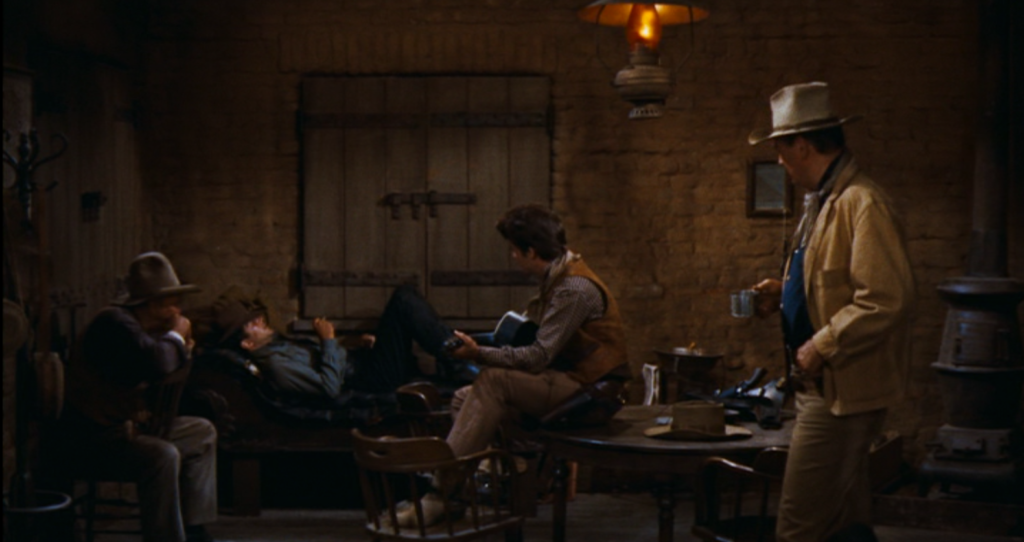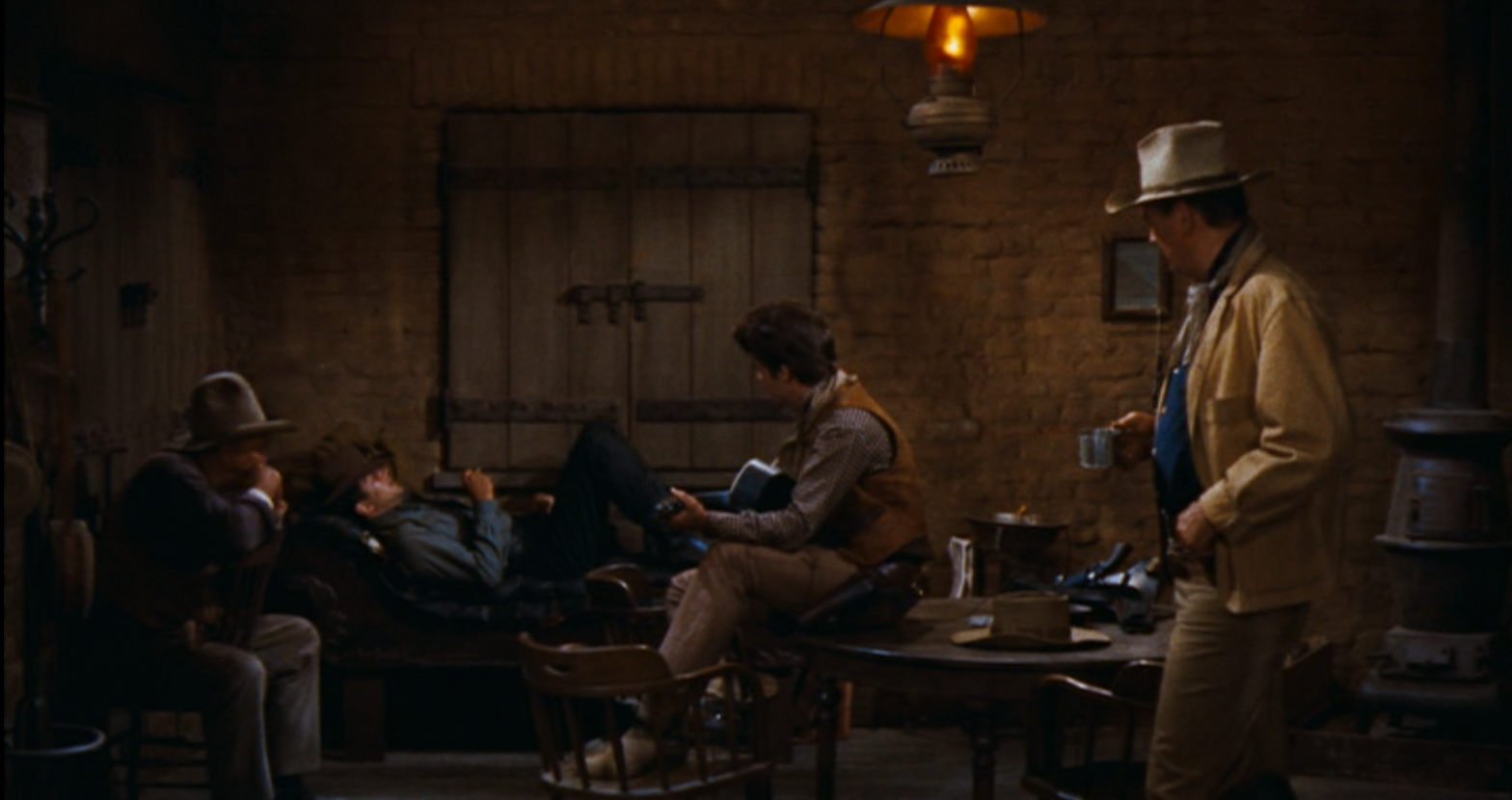Movie Review: Rio Bravo (1959) directed by Howard Hawks
Rio Bravo is a small town in the West Texas county of Presidio, not too far from the Mexican border. The rancher with the biggest spread nearby is Nathan Burdette (John Russell). He also has something of a monopoly on guns for hire in the area, being the highest bidder whenever one comes along. But there’s a fly in his ointment, his no-good brother Joe Burdette (Claude Akins). One night Joe is bullying the pathetic drunkard “Borrachón” in a saloon when a bystander interferes. Joe pulls a gun and shoots the interloper, and is soon arrested by Sheriff John T. Chance (John Wayne) for murder.

Nathan won’t stand for his brother being hanged so bottles up the town with his men to make sure the sheriff can’t call for outside help. Then he starts ratcheting up the pressure. A woman called Feathers (Angie Dickinson), a recent widow with a shady past, came in on the stagecoach and can’t get out; she starts getting into John’s business. Wagon train leader Pat Wheeler (Ward Bond) also comes into town with a caravan including a dynamite wagon, and a bright young guard, “Colorado” Ryan (Ricky Nelson). There’s too many targets in Rio Bravo for the sheriff’s liking.
It’s not that Sheriff Chance is entirely alone. His jail is guarded by “Stumpy” (Walter Brennan), a former small rancher who still walks with a bad limp from where the Burdette employees got too rough when his spread was bought out. And Borrachón was shocked enough by the murder to temporarily sober up and reclaim his previous nickname of “Dude” (Dean Martin). A former sheriff’s deputy, he’s still an excellent shot, but his hands shake when not holding a gun and he’s an emotional wreck from the circumstances that led him to drink in the first place.
Wheeler worries that this is not enough and tries to drum up a posse for the sheriff, but John is having none of that. He’s not going to put amateurs up against professional gunfighters just for the sake of numbers. Even Wheeler isn’t good enough with a gun to make him more of an asset than a liability. Colorado might do, but he’s smart enough not to go asking for trouble…until after Wheeler is murdered just for wanting to help the sheriff in the first place.
This late-Fifties Western brought frequent co-workers John Wayne and Howard Hawks together after several years apart. They’d both disliked movies (most notably High Noon) where an outnumbered lawman seeks help from civilians who are too cowardly to step up. So this movie features a sheriff who deliberately turns down help because as a professional he should be able to handle this (and then gets it anyway.)
This is a long movie, over two hours, so it has time for multiple subplots. Not just “will the sheriff overcome the bad guys” but also “will Dude manage to stay on the wagon despite setbacks” and “can Feathers and John overcome their initial suspicion to realize they love each other?”
John Wayne is solid as usual in the center role. This was a rare dramatic role for Dean Martin, and he brings his A-game. Ricky Nelson is…okay but you can tell he’s not used to movie acting yet. The supporting cast is also good, though hotelier Carlos Robante (Pedro Gonzalez) plays his Hispanic comic relief character more broadly than is now fashionable. There’s a brief musical interlude (as was the custom of the time) which allows Martin and Nelson to shine in a duet. (The advertising very much pushed Ricky Nelson to bring in younger audiences who might not otherwise have gone to an old-style Western.)
And this was in many ways an old-style Western. No dark shades of gray in the morality, little fancy cinematography, and the violence serves the narrative, rather than the other way around.
Also the script is very good, attributable at least in part to co-writer Leigh Brackett, who seems to have done most of the actual writing down, and later wrote the novelization.
Content note: Fisticuffs, lethal gun violence. One scene is specifically bloody. Alcohol abuse. Bullying. Stumpy mistreats his prisoner in a way that should never fly in the modern day. People are seen in 19th Century risqué outfits. Extramarital sex is heavily implied.
Overall: One of the all time great Westerns and one of John Wayne’s best. Highly recommended to Western fans.

